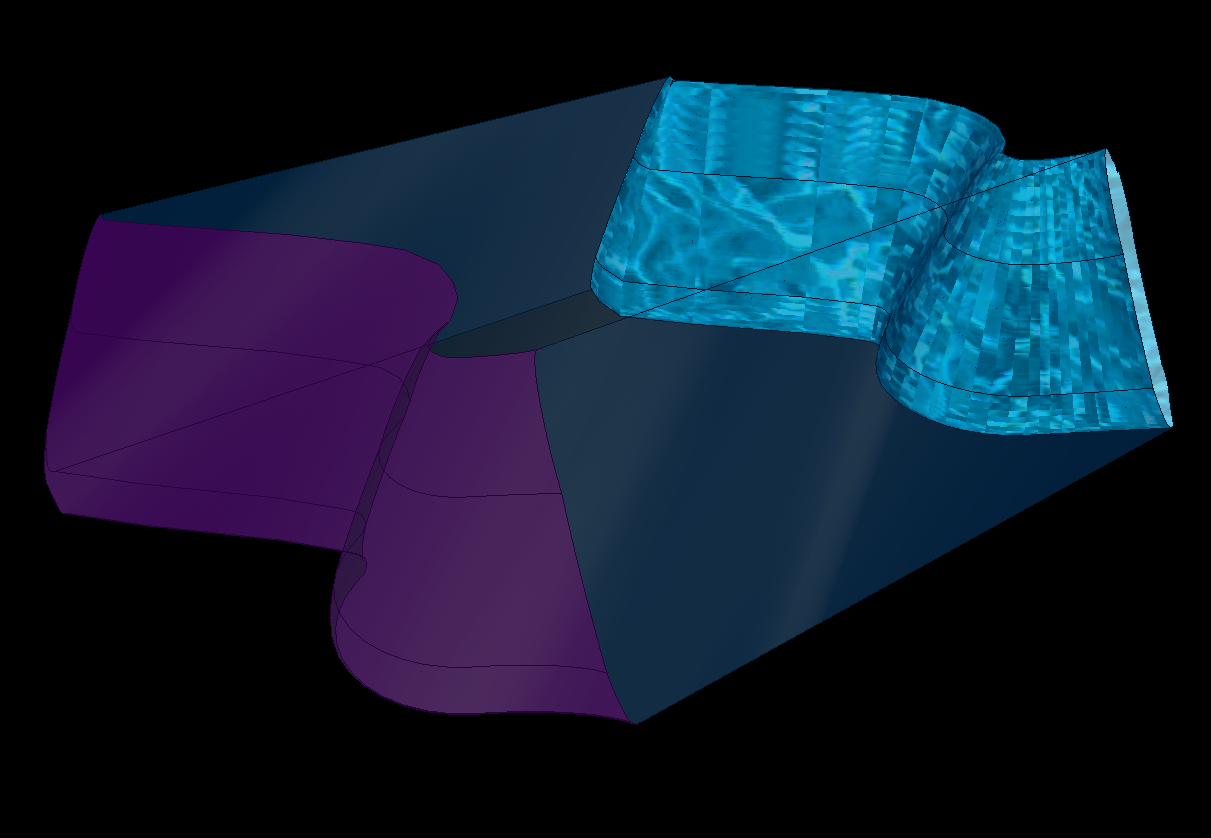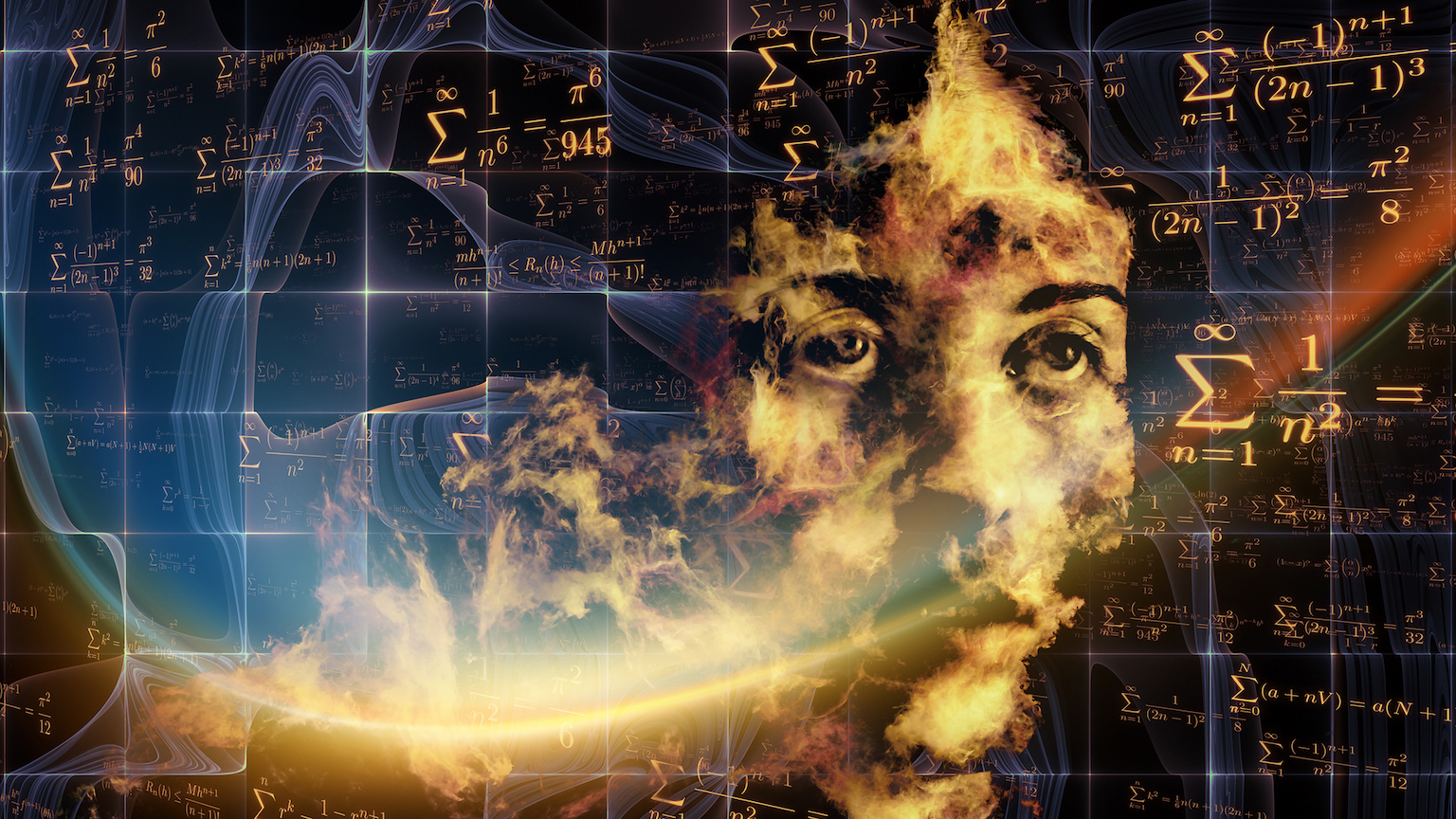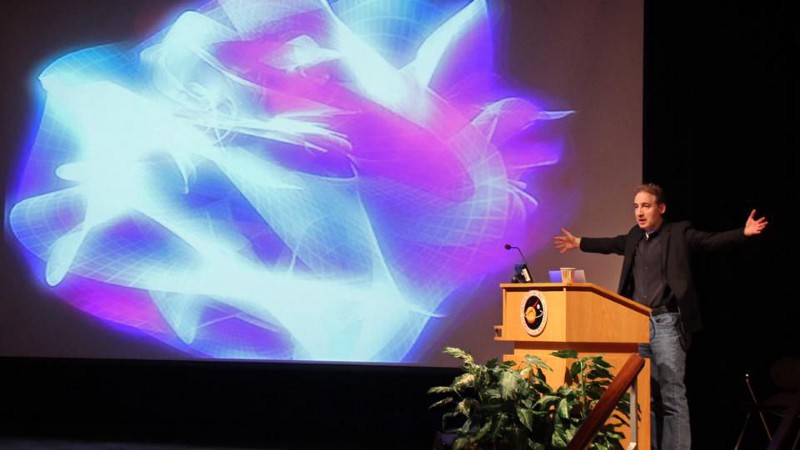There’s a pursuit of simplicity and unification in theoretical physics, aiming for a single mathematical law to unify quantum mechanics and gravity: a theory of everything. But while other forces have been successfully unified, gravity resists integration — casting doubt on the likelihood of ever unlocking the mother of all theories.
As physicist Janna Levin explains, black holes, with their strong spacetime curvature, provide insights into this challenge. Levin draws parallels to mathematicians’ incompleteness theorems, noting the inherent limitations in such an overarching theory.
Acknowledging the complexity of the endeavor, Levin emphasizes the need to embrace and explore gravity’s enigmatic nature. In doing so, the pursuit of unification might still yield profound insights, even if a comprehensive theory of everything remains elusive.
Janna Levin: When we look at the world, it looks incredibly complicated. In physics, the campaign has always been to kind of screen out the illusion of the complexity, and to search for simplicity. And the search for simplicity has been a tremendous driving factor. You could say it's a philosophical motivation, the belief that the Universe is actually knowable and is actually simple. That means that all the physical phenomena of matter that we understand and that you can reduce the complexity of this entire world; it's reducible to one mathematical law. And the power of that is tremendous.
The one outlier is gravity. Gravity really resists unification. Gravity doesn't play well with quantum mechanics. And that program, to go all the way to push it further to the "theory of everything," what people really are talking about there is the theory that includes gravity. And that has alluded all of the explorers, really since Einstein. And it continues to be kind of the "holy grail" that theoretical physicists pursue.
Ultimately, the goal is to try to get quantum mechanics, the description of matter on the smallest microscopic scales and the highest energies with gravity, which is the other extreme; space and time on the largest scales, the understanding that the Universe is something, it is space and time as well as everything that it can hold. And for reasons that have really haunted theoretical physics, we can't get our heads around how to get them to play nice, how to get them to work together.
So let's use the black hole 'cause the black hole is the ideal terrain on which to try to explore these pursuits because it's on the terrain of black holes, in the spacetime, thinking of black holes as a place, not a thing. It's in that spacetime that we see gravity become so strongly curved that even if it doesn't form a singularity, it is invoking quantum phenomena because it is now talking about curvatures and deformations in spacetime that are so small and yet so energetic. And we just don't know how to tell that story. We just don't know how to do it.
We can sit down with pen and paper and try to imagine how gravity might be quantized, but all of those attempts, they all fail on the page, they all fail in the theory. It might be that very few, if any of us, will ever actually fall into a black hole. But then again, very few of us experienced the quantum gravity of the Big Bang. And yet just our knowledge of it, it's changed how we see our place in the world, every bit as much if not more than Copernicus changed society, culture, the future of humanity by displacing us from the center of the Universe; by forcing us to accept that we orbited the Sun, and that the Sun was not the center of the galaxy, and the galaxy is not the center of the Universe, and the Universe might not even be the only one.
And so this is the greatest campaign to understand, will we ever have a quantum theory of gravity? And when we do, we hope that that means we will have a theory of everything because then we will be able to fold all of the known forces into one, and that everything in the entire Universe and everything that has ever happened will precipitate from that one law of physics.
Unification has been remarkably successful in theoretical physics, in understanding the matter forces. It's been clear that electricity was a known phenomena. Naturally occurring magnetism was a known phenomenon. In the late 1800s, those were unified into one physical description of electromagnetism, one force describing matter. But the ultimate theory of everything, the unification of matter and gravity, it just might not succeed.
And I think one discovery of the early part of the last century by a mathematician known as Kurt Godel and Alan Turing, as mathematicians, they realized that there would never be a theory of everything for mathematics, that there simply were mathematical facts that were true, that could never be proven to be true in the context of mathematics. And they were called 'Incompleteness theorems.' And I think that has started to dawn on more and more people at the forefront of this pursuit, where people are thinking more and more openly about the limitations of unification.
Or maybe I could rephrase it at the success of unification, taking seriously gravity's resistance as signaling that there might be something very, very wrong with gravity, and that we should maybe abandon our ambition to find the theory of everything, and begin to reexamine the nature of gravity fundamentally.






